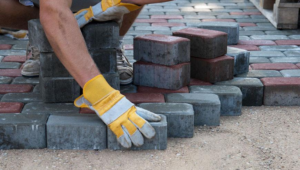The military’s fleet of Humvees (or HMMWV, for High-Mobility Multipurpose Wheeled Vehicle) has been used in just about every patch of dry land on the planet. The Army’s JLTV may be better at some things, but the Humvee still has an important role to play.
It has rumbled through rocks, sand and snow; pulled trailers down highways; and even dangled from helicopters. Click the https://www.streetlegalexports.com/ to learn more.

In the 1980s, the Army realized that its old fleet of M561 Gama Goats and M151 Jeeps were not keeping pace with evolving weapons systems and tactics. It needed a versatile “jack-of-all-trades” light tactical vehicle to supplant a variety of outmoded models. That vehicle became the High Mobility Multipurpose Wheeled Vehicle, or HMMWV (known colloquially as the Humvee).
AM General, Chrysler Defense, and Teledyne Continental were each awarded contracts to design and build prototypes of this new vehicle. They each built eleven vehicles that went through a series of exhaustive tests to prove their designs and abilities. These included off-road courses and grueling desert and Arctic expeditions. The final decision was made in March of 1983 and AM General won the contract to produce 55,000 of the vehicles.
The resulting vehicle was a big success. It was built to haul cargo and carry troops, but it also incorporated armor-plated hulls that could withstand small arms fire and roadside improvised explosive devices. Its rugged, oversize body helped it stand out in photographs and videos of the military’s 1989 invasion of Panama and the Iraq War in 2003.
Over time, the Army has adapted the HMMWV to meet changing missions and requirements. It has become the primary transportation for soldiers in many parts of the world and has served as a logistical workhorse for the entire US military.
Despite the arrival of the Joint Light Tactical Vehicle or JLTV, which is intended to eventually replace the Humvee, the Army has no plans to retire it anytime soon. It has stated that it intends to develop a plan to sustain the existing fleet through 2048.
The Humvee has a unique place in the history of the United States military. It may have gained popularity as a symbol of macho posturing, but its origins were purely practical. The Army needed a jack-of-all-trades light tactical vehicle and the HMMWV was the answer. The vehicles are not a panacea for all of the Army’s problems and it is clear that they have their limitations, but they are an essential tool for the Army to use in a wide variety of military operations.
The Humvee’s mission
The Army developed the Humvee (also known as HMMWV) in the 1970s to replace its fleet of Jeeps and other light vehicles. It was designed to be an all-terrain vehicle that could transport soldiers and cargo in a variety of environments, from deserts to forests to urban areas.
The military used a lot of Humvees during the Gulf War in 1991 and the subsequent conflicts in Iraq and Afghanistan. And the truck made a name for itself in the media, thanks to its iconic, muscular appearance and catchy soundtrack. But the Humvee’s greatest challenges weren’t on foreign battlefields; they were in paved city streets and suburban soccer fields.
As the war in Iraq wore on, the Army began to realize that it needed more protection than the Humvee could offer. Minimally armored Humvees were vulnerable to roadside bombs that ripped through them like tuna cans, killing service members. The military tried to address this problem by bolting on heavy plates of steel to the vehicles, but this added weight made the Humvee slow and clumsy, making it more likely to rollover. It also put extra strain on the engine, drivetrain and chassis, accelerating wear and leading to mechanical failures.
For these reasons, the Army began testing new vehicles that would provide better protection than the Humvee. The military selected three prominent manufacturers of military equipment—AM General, maker of the Army jeep; Teledyne Continental Motors, which makes commercial Jeeps for American Motors; and General Dynamics, which acquired Chrysler’s Defense Division. Each company built a prototype of what became the Joint Light Tactical Vehicle, or JLTV.
The Army compared the performance of these vehicles to the performance of a baseline Humvee in a series of tests. They were carried out at several bases across the country, with each of the three JLTV entrants providing 22 test vehicles to be paired with up-armored Humvees from each manufacturer. The results showed that the JLTVs from Oshkosh, Lockheed Martin and AM General performed best in a variety of tests. The JLTVs from Oshkosh and Lockheed Martin also had the best overall operational performance for a three-year period.
The Humvee’s vulnerabilities
When Humvees first appeared in combat in Somalia, portrayed in the movie Black Hawk Down, they seemed like ideal military vehicles for moving troops reliably over long distances in harsh conditions. However, the hard-fought urban warfare that would characterize much of the rest of US combat operations in Iraq and Afghanistan soon revealed their limitations as light armored vehicles. The soft-skinned Humvees were vulnerable to small arms fire, and improvised explosive devices (IEDs), which could destroy the vehicle or injure or kill its crew.
The military’s early efforts to protect occupants of the Humvee were often crude. The simplest modification was adding armor to the bottom of the vehicle, which improved protection against mines and roadside bombs. But adding armor to the Humvee’s flat, aluminum body made it heavy and strained the chassis. The vehicle’s relatively low weight and low ground clearance also made it susceptible to rolling over, a danger that became more serious as the wars in Afghanistan and Iraq progressed.
In addition to adding armor, the military began training soldiers in best practices for surviving rollover incidents and developing better ways of driving the Humvees. As a result, both the number of Humvee rollovers and the associated casualties dropped dramatically.
Even the most uparmored Humvees, though, remain unprotected against a growing threat in the conflict zones: roadside bombs. The soft-skinned vehicles are highly vulnerable to lateral attacks, such as rocket-propelled grenades, and are not designed to absorb the blast from deep, underbody explosive devices.
The Humvee’s vulnerability to IEDs also drove the Pentagon to develop an alternative — the Mine Resistant Ambush Protected vehicle, or MRAP. These vehicles were heavier than the Humvee but offered more protection against mines and IEDs, according to an Inspector General’s report. The Pentagon rushed to buy and upgrade thousands of them for the wars in Iraq and Afghanistan.
However, the MRAPs are too large to fit through narrow roads in some cities, and they weigh more than the Humvees that carry troops on patrol and on medical missions. As a result, many soldiers continue to drive the Humvees that were originally intended for logistics and other noncombat roles. They may not go toe-to-toe with conventional tanks, but they can move troops to where they need them quickly and safely, allowing the armed forces to concentrate their resources in areas where they are most needed.
The Humvee’s future
The military’s old workhorse, the High Mobility Multipurpose Wheeled Vehicle, better known as the Humvee, has been supplanted by something newer and more capable, the Joint Light Tactical Vehicle. But it’s not exactly the end of an era: The military is still hanging onto thousands of Humvees, and they are expected to remain in service until 2048 at least.
When the first Humvees rolled off AM General’s assembly lines in the early ’80s, they were a technological marvel. The Army’s specifications called for a robust and versatile vehicle that could carry cargo, troops, firefighting equipment, and even serve as a launch pad for antitank missiles. And while the Jeep had the agility to overcome some of those obstacles, the Humvee was sturdier, with specifications that included armor that could stop 16-grain shrapnel traveling at 1,400 feet per second.
But the emergence of IEDs has changed things. The threat has forced the military to upgrade its vehicles, with up-armoring becoming a common feature of Humvees deployed in conflict zones. Those upgrades have been costly, but they’ve also improved the vehicles’ ability to survive roadside bombs and other threats.
And despite the fact that they may seem outdated, the Humvees are still perfect for many missions. After all, it’s financially and logistically impossible to equip every soldier in the Army with 70-ton tanks. But it is possible to get a lot of soldiers where they need to be with light, agile vehicles that can maneuver through cities and mountains alike.
Those light-duty vehicles will likely continue to be the Humvee, and they’ll be used for everything from transporting soldiers in convoys to conducting patrols to medical evacuations. The Army and Marine Corps are going to keep on holding on to thousands of them, too. Eventually, the service will need to figure out how to balance the needs of the future with keeping up with its existing fleet.








